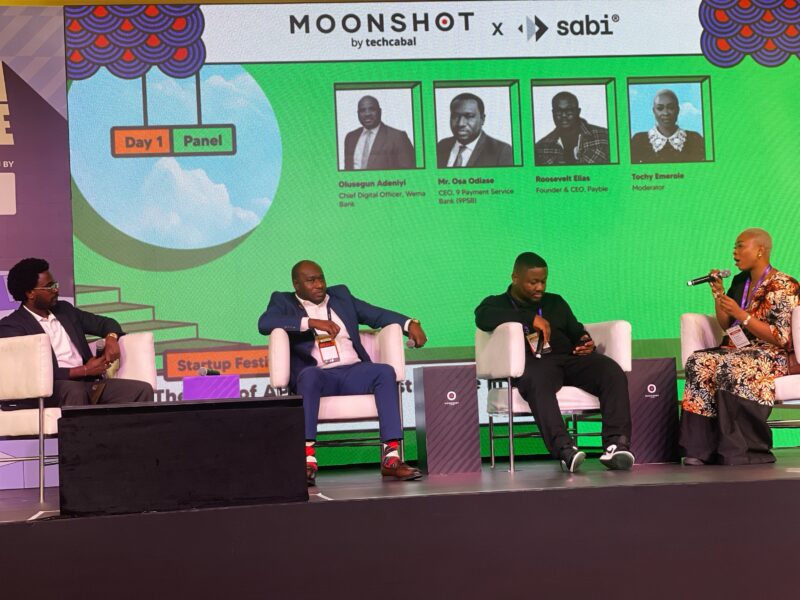Africa’s financial ecosystem has grown rapidly, but its infrastructure still poses a fundamental challenge where most startups and businesses cannot build or access digital financial services without significant cost or complex licensing hurdles.
To solve this, fintechs are building modular, API-driven solutions that plug into existing systems and scale across markets. At Moonshot by TechCabal, fintech leaders, including Roosevelt Elias, CEO of Payable; Osa Odiase, CEO of 9PSB; and Sidney Igidi, representing ALAT by Wema, discussed how these APIs have become the invisible pipes that allow banks, fintechs, and small businesses to connect, collaborate, and innovate faster.
Their panel explored how APIs are the middleware linking traditional banks with agile startups that understand local user needs but lack the regulatory or technical capacity to operate independently.
Elias noted that beyond financial inclusion, APIs have drastically lowered the cost and time required to build financial products. This ease of integration, he said, has triggered a new wave of B2B innovation in lending, remittances, and embedded finance, enabling startups to launch faster while relying on banks’ compliance and settlement rails.
“APIs have come to make innovation easier and simpler,” Elias said. “You get from point A to point B quickly, and startups can now build products in a month because they can access the right APIs to streamline their operations.”
Odiase emphasised that APIs are helping innovators bridge the gap between banks and underserved communities by driving financial inclusion and accessibility across Africa. He highlighted the need for banks to empower startups to reach both the banked and the underbanked more efficiently.
“As a financial institution, it is difficult to build solutions that solve everyone’s problems,” Odiase said. “But through banking-as-a-service APIs, these startups can innovate and connect their products to the wider banking ecosystem.
“We give innovators access into the banking ecosystem that allows them to serve the customers they’ve designed their products for,” he expressed.
For Igidi of ALAT by Wema, the bank’s approach has been to “turn every business into a financial service provider.” ALAT’s modular APIs allow developers to pick exactly what they need from account creation to transfers and settlements, enabling companies to integrate payments without heavy backend work.
“It is about giving people a space to play. Whether the app has to do with finance or not, financial services are now the layer that powers everything.”
Despite these advancements, the panelists agreed that true interoperability, where APIs across banks and payment service providers work seamlessly, remains a major challenge.
“Most of our rails in Nigeria are siloed,” Elias said. “Maybe there should be standardisation so that integrating one API doesn’t mean rebuilding everything for another provider.”
Odiase, however, cautioned that while collaboration is crucial, total uniformity could limit innovation.
“The bedrock of an API-driven ecosystem is collaboration, but there’s also a place for competition. How robust or flexible my API is, that’s where innovation comes in,” Odiase said.
The panelists’ perspectives underscored a key reality that the future of B2B payments in Africa will depend on how well the ecosystem balances openness with differentiation, ensuring security and reliability without stifling creativity.








